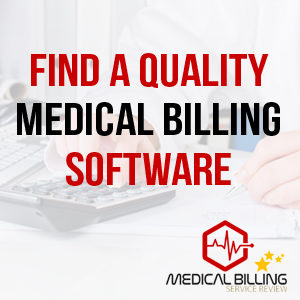
Deciding Between Medical Billing Services or Software for Small Businesses
For small healthcare practices, managing medical billing efficiently is crucial for financial stability and patient satisfaction. In today’s market, there are two primary options: outsourcing to a medical billing service or using medical billing software. Both approaches have their pros and cons, and understanding these can help you make an informed decision that best suits your practice’s needs.
Medical Billing Services: Pros and Cons
Medical billing services take the burden of billing off your hands, handling everything from submitting claims to following up on unpaid invoices.
Pros:
- Expertise and Compliance: Billing services employ experienced professionals who are up-to-date with billing regulations and coding, reducing the risk of errors and compliance issues.
- Time-Saving: Outsourcing frees up your staff to focus on patient care and other core activities.
- Dedicated Follow-Ups: They persistently follow up on unpaid claims, ensuring better revenue collection.
Cons:
- Cost: Billing services typically charge a percentage of the collected revenue, which can be significant depending on the volume of billing.
- Less Control: Outsourcing means less direct control over the billing process, which some practitioners may find disconcerting.
- Dependence on a Third Party: You’re reliant on another company for a crucial part of your practice’s operations.
Medical Billing Software: Pros and Cons
Medical billing software allows practices to handle billing in-house with specialized tools designed to streamline the process.
Pros:
- Cost-Effectiveness: Generally, using software is more cost-effective than outsourcing, especially for practices with a high volume of billing.
- Control and Customization: It offers more control over billing processes and can be customized to fit specific practice needs.
- Integration with EHR/EMR: Many billing software options integrate seamlessly with electronic health records (EHR) or electronic medical records (EMR) systems, streamlining data management.
Cons:
- Requires Training and Time: Successfully implementing billing software requires training and time investment, which can be a drawback for busy practices.
- Potential for Errors: Without experienced billing staff, there’s a risk of errors in coding and claim submission.
- Ongoing Maintenance: The software requires regular updates and maintenance, which can be challenging for some practices.

Features to Consider in Both Options
When deciding between the two, consider these key features:
- Compliance with Healthcare Regulations: Both services and software should be compliant with healthcare regulations like HIPAA.
- Claim Processing and Submission Capabilities: Efficient processing and submission of claims are crucial for timely reimbursements.
- Reporting and Analytics: Insightful reporting tools can help you understand the financial health of your practice.
- User Interface and Ease of Use: The system should be intuitive and user-friendly.
- Customer Support: Reliable customer support is essential, especially for software solutions.
Making the Final Choice
The decision between a billing service and software depends on several factors:
- Size and Volume of Your Practice: Larger practices with more billing volume might find software more cost-effective.
- In-House Expertise: If you have staff experienced in medical billing, software may be a viable option.
- Budget Constraints: Evaluate the cost implications of both options in the context of your practice’s budget.
- Long-Term Business Goals: Consider how each option aligns with your practice’s growth and long-term goals.
Evaluating the Impact of Your Choice on Patient Satisfaction
An often-overlooked aspect of choosing between medical billing services and software is the impact on patient satisfaction. In the healthcare industry, patient experience extends beyond clinical care to include interactions with billing processes.
Billing Services and Patient Experience
When using a billing service, the interaction between patients and the billing process is generally handled by the service provider.
Pros:
- Professional Interaction: Billing services typically have experience in handling patient inquiries, offering a professional level of communication.
- Efficient Resolution of Billing Issues: Their expertise can lead to quicker resolution of billing disputes or confusions, enhancing patient satisfaction.
Cons:
- Less Personalized Interaction: As the service is outsourced, patients may not receive the personalized care they might expect from the practice itself.
- Potential for Communication Gaps: Relaying patient-specific information and nuances to a third-party billing service can sometimes lead to misunderstandings or delays.
Billing Software and Patient Experience
Implementing in-house billing software means your staff will handle billing-related patient interactions directly.
Pros:
- Personalized Service: Direct interaction with patients can be more personalized, fostering a stronger patient-practice relationship.
- Immediate Access to Patient Data: Being integrated with the practice’s systems, it’s easier to access and review patient records during interactions.
Cons:
- Dependent on Staff Expertise: The quality of patient interactions will depend on your staff’s expertise and training in billing processes.
- Time Constraints: Staff managing both clinical and billing inquiries may be overwhelmed, potentially affecting the quality of patient service.

Integrating Billing with Overall Practice Management
Regardless of the option you choose, the billing process should integrate seamlessly with your overall practice management. This integration is vital for maintaining a streamlined workflow, accurate record-keeping, and ensuring patient data confidentiality.
- Data Integration: Billing data should sync with patient records and scheduling systems, providing a cohesive overview of each patient’s journey.
- Workflow Efficiency: The chosen system should improve the practice’s overall efficiency, reducing administrative burdens and freeing up staff to focus on patient care.
- Confidentiality and Security: Ensuring patient data security and compliance with regulations like HIPAA is paramount in any billing system.
Long-Term Flexibility and Scalability
Consider the long-term flexibility and scalability of your billing system. As your practice grows, your billing needs will evolve.
- Adaptability: Can the system adapt to changing healthcare regulations and billing practices?
- Scalability: Will it be able to handle an increased volume of patients and more complex billing scenarios?
Deciding between a medical billing service and software is a multifaceted choice that impacts not only your practice’s financial health but also patient satisfaction and overall practice efficiency. It’s essential to weigh the pros and cons of each, considering how they align with your practice’s size, staff capabilities, patient interaction quality, and long-term goals. Remember, the right billing approach is one that not only streamlines your financial operations but also contributes positively to the patient experience and aligns with the growth trajectory of your practice.

Exploring Advanced Features in Modern Medical Billing Solutions
To further extend the discussion and to make the choice between medical billing services and software more nuanced, it’s important to explore the advanced features offered by modern medical billing solutions. These features can significantly influence the efficiency, accuracy, and overall effectiveness of your medical billing process.
Advanced Features in Medical Billing Software
Modern medical billing software often comes equipped with features that go beyond basic billing and coding functionalities:
- Automated Billing and Coding Updates: Stay current with the latest billing codes and regulations, reducing the risk of errors and denied claims.
- Integrated Electronic Health Records (EHR): Seamless integration with EHR systems ensures that patient data is synchronized across all platforms, enhancing accuracy and efficiency.
- Customizable Reporting Tools: Detailed reports can help you analyze various aspects of your practice’s financial health, such as revenue cycles, payer mix, and claim denial rates.
- Patient Portal Integration: Some software options offer patient portals where patients can view and pay their bills online, check their account balance, and set up payment plans, enhancing patient engagement and satisfaction.
- Data Security and Compliance: Features that ensure data security and compliance with regulations such as HIPAA are critical in protecting patient information.
Benefits of Comprehensive Billing Services
On the other hand, comprehensive medical billing services can offer a level of convenience and expertise that goes beyond what software alone can provide:
- Dedicated Billing and Coding Experts: Having access to professionals who are up-to-date with the latest changes in medical billing and coding can be invaluable, especially in navigating complex billing scenarios.
- Handling of Denials and Appeals: Billing services typically manage the entire process of claim denials and appeals, using their expertise to increase the chances of successful reimbursement.
- Regular Financial Performance Reviews: Many services provide regular reviews and consultations to help you understand your practice’s financial performance and identify areas for improvement.
- Patient Billing Inquiries and Support: Outsourcing can include handling patient billing inquiries and support, offloading a significant administrative burden from your practice’s staff.

Making the Final Choice: Aligning with Your Practice’s Needs
In making the final decision between medical billing software and services, consider the specific needs and capabilities of your practice:
- Practice Size and Volume: Larger practices with higher patient volumes might benefit more from robust software solutions, while smaller practices might find outsourcing more practical.
- In-House Expertise: Assess the level of expertise your staff has in medical billing. If your practice lacks this expertise, a billing service might be the better option.
- Technology Integration: Consider how well the software or service will integrate with your existing systems, such as EHR and practice management software.
- Budget and Return on Investment: Weigh the costs against the potential ROI. While software might have a lower upfront cost, a billing service could potentially recover more revenue through efficient claim processing and follow-ups.
How Does In-House Medical Billing Compare to Outsourcing?
Understanding the differences between in-house medical billing and outsourcing is crucial for healthcare providers, especially when deciding which approach best suits their practice’s needs. Each option has its unique advantages and challenges, and comparing them can help in making an informed decision.
In-House Medical Billing
In-house medical billing involves managing the billing process within your practice, and utilizing your staff and resources. This option gives you direct control over billing operations but requires adequate infrastructure and expertise.
Outsourcing Medical Billing
Outsourcing involves hiring a third-party company to handle your medical billing. This option can relieve your staff of the complexities of billing, allowing them to focus on patient care.
Comparing the Two Options
When comparing in-house billing to outsourcing, consider the following factors:
- Size and Scope of Practice: Larger practices might have the resources to efficiently manage in-house billing, while smaller practices may benefit more from outsourcing.
- Financial Implications: Assess the cost-benefit analysis of both options. Consider not just the immediate costs, but also long-term financial impacts such as cash flow, claim reimbursement rates, and administrative savings.
- Staff Expertise and Bandwidth: Evaluate your staff’s expertise in medical billing and their capacity to take on additional tasks.
- Flexibility and Adaptability: Consider how quickly each option can adapt to changes in healthcare regulations, billing practices, and the growth of your practice.

Making the Final Decision
Choosing between in-house billing and outsourcing requires a thorough assessment of your practice’s unique needs, goals, and resources. While in-house billing offers control and customization, outsourcing provides expertise and efficiency. Ultimately, the decision should align with your practice’s operational strategy, financial goals, and the desire to provide the best possible care to your patients.
Deciding whether to manage medical billing in-house or to outsource is a significant decision for any healthcare practice. It impacts not only the financial operations but also the overall efficiency and focus of your practice. By carefully weighing the advantages and challenges of each option, you can choose a path that supports the financial stability and growth of your practice while ensuring that your patients receive the best possible care.
Choosing between medical billing services and software is a significant decision for any small healthcare practice. While services offer expertise and time-saving benefits, software provides control and cost-effectiveness. Carefully assess your practice’s specific needs, staff capabilities, and financial considerations before making this choice. Whichever route you choose, the goal is to ensure that your billing process is efficient, and compliant, and contributes positively to your practice’s financial health.
Author: Mike Cynar
Mike Cynar brings buyers and sellers together by producing reviews and creating non biased webpages allowing users to share their experiences on various products and services. He and his staff write informative articles related to the medical field, legal, and other small business industries.

Leave a Reply